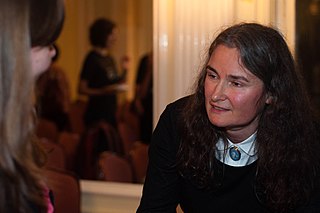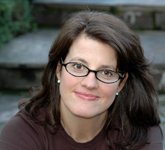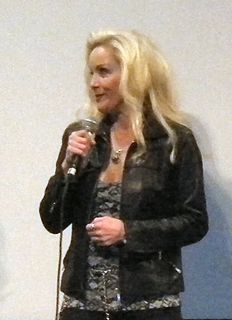A Quote by Ben Katchor
The funny thing is, nationalism only could have come about in Europe after the invention of printing. You could have this thing that was a book in a vernacular language, and you could imagine there were other readers of this book who you couldn't see, but they were a theoretical union of readers who all use the same language. That is kind of a prerequisite for a national fantasy. You need that thing, and it's a strange thing.
Related Quotes
The only thing I hope for is that, regardless of what the outward world is for different people, different nations, I hope their internal world is similar. And if I, hopefully, have managed to somehow describe my inner world in this book, all I count on is that it will have some resonance among the American readers, or, at the very least, the American readers will treat this book as a kind of a guidebook for my inner world, strange as it may appear.
Vishous screamed. The only thing that was louder was the pop as the hip was relocated, as it were. And the last thing he saw before he checked out of the Conscious Inn & Suites was Jane's head whipping around in a panic. In her eyes was stark terror, as if the single worst thing that she could imagine was him in agony... And that was when he knew that he still loved her.
My readers often say to me, 'If we lived next door to each other, we'd be best friends.' That is precisely what I wanted to say to smart, funny, self-effacing Ellen McCarthy after I finished reading The Real Thing. I loved every lesson laid out in a book that wouldn't dare to call itself a field guide to marriage but amounts to as much on every page. This is a deeply useful little book.
I was under twenty when I deliberately put it to myself one night after good conversation that there are moments when we actually touch in talk what the best writing can only come near. The curse of our book language is not so much that it keeps forever to the same set phrases . . . but that it sounds forever with the same reading tones. We must go out into the vernacular for tones that haven't been brought to book.
I hadn't had a book in my hands for four months, and the mere idea of a book where I could see words printed one after another, lines, pages, leaves, a book in which I could pursue new, different, fresh thoughts to divert me, could take them into my brain, had something both intoxicating and stupefying about it.
I wonder, what's in a book while it's closed. Oh, I know it's full of letters printed on paper, but all the same, something must be happening, because as soon as I open it, there's a whole story with people I don't know yet and all kinds of adventures, deeds and battles. And sometimes there are storms at sea, or it takes you to strange cities and countries. All those things are somehow shut in a book. Of course you have to read it to find out. But it's already there, that's the funny thing. I just wish I knew how it could be.
CBGB was a wild place, ... The first time I ever played there was in 1987, I think, with my hardcore band, Scream. And I remember the craziest [thing] about that club was you could be in
front of the stage and it could be louder than any show you've ever been to in your life. But if you were towards the back of the club at the bar, you could sit and have a conversation with
someone. It was the weirdest thing to me.
I don't change the language for children books. I don't make the language simpler. I use words that they might have to look up in the dictionary. The books are shorter, but there's just not that much difference other than that to be honest. And the funny thing is, I have adult writer friends [to whom I would say], "Would you think of writing a children's book?" and they go, "No, God, I wouldn't know how." They're quite intimidated by the concept of it. And when I say to children's books writers, would they write an adult book, they say no because they think they're too good for it.
In re-reading 'Presumed Innocent,' the one thing that struck me - and I re-read the book four different times in writing 'Innocent,' interested in different things each time - but I did think there were a couple of extra loops in the plot that I probably didn't need. The other thing that sort of amazed me was how discursive the book was.


































